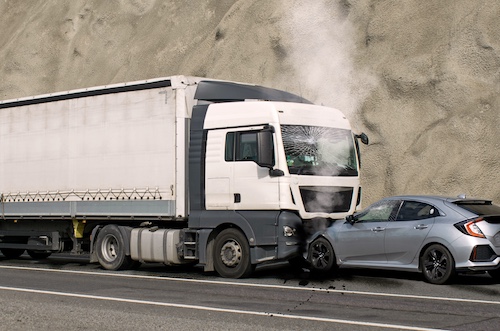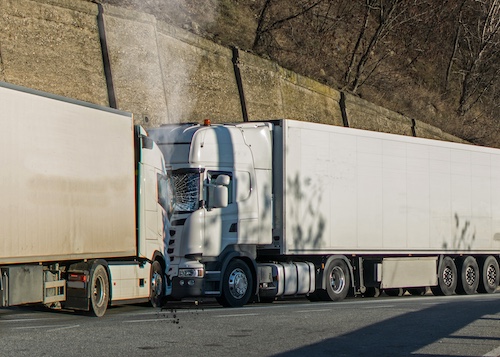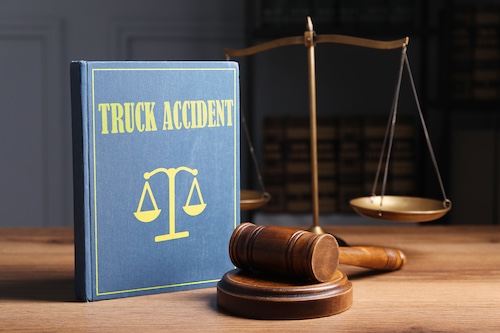Truck Driver Accident in Charlotte: What Victims Need to Know
At 1Charlotte Personal Injury Lawyers, we focus on helping accident victims across North Carolina recover the compensation they deserve. Based in Charlotte, our team handles cases involving car accidents, truck driver accidents, personal injury, and workers’ compensation. We offer free case reviews and work on a contingency-fee basis, meaning clients pay nothing unless we win. Our attorneys combine strong courtroom advocacy with personal, compassionate support at every step. At 1Charlotte, your recovery and peace of mind are always our top priority.
A truck driver accident in Charlotte can change lives within seconds. These crashes often involve massive tractor-trailers, multiple vehicles, and serious injuries. Victims face medical costs, lost income, and difficult insurance claims while trucking companies move fast to protect their interests. Understanding how liability works and what steps to take next is crucial.
This guide explains what happens when a truck driver causes an accident in Charlotte, how North Carolina law applies, and why working with a skilled Charlotte truck accident lawyer can help victims secure fair compensation.
Key Differences in a Truck Crash vs. a Regular Car Accident
Truck driver accidents are different from standard car crashes in almost every way. The size, weight, and regulations involved in commercial vehicles create higher risks and more severe outcomes.
Scale and Impact
A truck crash often involves large commercial vehicles such as tractor trailers weighing up to 80,000 pounds. The impact of a truck striking a smaller vehicle is far greater than a car-to-car collision. These accidents can lead to chain reaction crashes, fires, and multiple victims. The difference in force makes injuries more severe and property damage more extensive.
Multiple Liable Parties
In a truck driver accident, more than one party may be held liable. The truck driver, trucking company, maintenance provider, or cargo loader can all contribute to the crash. A Charlotte truck accident lawyer investigates each party’s role to determine responsibility and build a strong case for injured victims.
Federal and State Regulations
Truck drivers and trucking companies must follow both federal and North Carolina laws. The Federal Motor Carrier Safety Administration (FMCSA) sets rules on hours of service, vehicle inspections, and driver conduct. Violating these regulations can prove negligence. In North Carolina, these standards work alongside traffic laws enforced by the Department of Transportation and state statutes under Chapter 20.
Evidence and Investigation
Truck accident cases involve more detailed evidence than a regular car accident. Investigators review the truck’s electronic logging device, black box data, maintenance records, and driver logs. These details reveal whether violations or inattention contributed to the crash.
Insurance and Settlements
Trucking companies carry large commercial insurance policies. Adjusters for these insurers often work quickly to limit payouts. Victims of a truck crash should seek help from a Charlotte truck accident attorney who understands commercial claims and how to secure fair compensation.
Legal & Regulatory Framework Governing Truck Drivers in North Carolina
Truck drivers and trucking companies in North Carolina must follow strict laws that control how commercial vehicles operate. These rules define responsibility, safety standards, and liability in every truck driver accident.
State Laws and Driver Duties
North Carolina law requires every driver involved in a crash to stop, help the injured, and share identifying information. This duty is outlined in N.C. Gen. Stat. § 20-166. Truck drivers must also hold a valid Commercial Driver’s License under G.S. § 20-37.12, proving they are qualified to operate large commercial vehicles. The state’s Department of Public Safety oversees compliance with motor carrier rules.
Commercial Vehicle Standards
Truck drivers must meet higher safety and maintenance standards than typical motorists. Tractor-trailers require regular inspections, weight checks, and brake system evaluations. Failure to maintain these standards can lead to violations that prove negligence in a truck crash investigation. A Charlotte truck accident lawyer reviews inspection and repair records to confirm compliance with these laws.
Federal Motor Carrier Safety Regulations
The Federal Motor Carrier Safety Administration (FMCSA) governs truck driver operations across state lines. Federal rules limit driving time, mandate rest periods, and require electronic logging devices to track hours of service. These regulations reduce fatigue and distracted driving, two major causes of serious truck accidents. If a truck driver violates FMCSA rules, that violation can be used as evidence of fault in a truck accident case.
Coordination Between Federal and State Authorities
North Carolina enforces FMCSA rules through its Department of Transportation and Highway Patrol. Investigators often work with the National Transportation Safety Board (NTSB) to review crashes involving commercial vehicles. This cooperation ensures all safety standards are reviewed and that negligent parties are held accountable when their actions contribute to a truck driver accident.
Why Compliance Matters
Following both state and federal regulations protects lives and prevents traffic disasters. When drivers or trucking companies ignore these rules, they place everyone on the road at risk. A Charlotte truck accident attorney can use these violations to prove liability and secure justice for victims injured in a commercial vehicle crash.
What Happens Immediately After a Truck Driver Accident?
The moments following a truck driver accident are chaotic and critical. Every action at the scene can affect safety, evidence, and the outcome of any future claim.
Securing the Scene
After a truck crash, all drivers must stop and remain at the scene under N.C. Gen. Stat. § 20-166. Emergency services should be called right away to help the injured and control traffic. Police officers will document the scene and file an official crash report, which becomes an important part of a truck accident case. Drivers should stay clear of hazards such as leaking fuel, fire, or unstable vehicles.
Gathering Initial Evidence
The first few minutes are key for collecting evidence. Photos of the vehicles, debris, and road conditions can show how the accident happened. Witness statements and contact information should be recorded before people leave. The truck’s license plate, company name, and Department of Transportation number should also be noted. These details help investigators and a Charlotte truck accident lawyer identify the responsible parties.
Preserving Critical Data
Commercial vehicles carry valuable electronic data that helps determine fault. The truck’s Electronic Logging Device (ELD) and black box record driving hours, speed, and braking patterns before the crash. A Charlotte truck accident attorney can issue a spoliation letter to preserve this data before it is lost or deleted. Maintenance logs, inspection records, and driver service hours should also be secured for review.
Involvement of Investigators
Local police, the North Carolina Department of Transportation, and sometimes the National Transportation Safety Board (NTSB) investigate serious crashes. They analyze driver behavior, mechanical failures, and road conditions. Their findings often reveal whether negligent driving, distracted operation, or violations of federal regulations contributed to the truck crash.
Medical Care and Reporting
Injured victims should seek medical attention immediately, even for minor pain. Some injuries, like concussions or internal bleeding, do not appear right away. Medical reports establish a timeline that links injuries directly to the truck driver accident. Victims should keep copies of medical bills, police reports, and any correspondence from insurance companies to support their claim later.
Who Can Be Held Liable?
Liability in a truck driver accident can extend far beyond the person behind the wheel. Several parties may share responsibility based on their role in causing or contributing to the crash.
The Truck Driver
A truck driver can be held liable for negligence such as distracted driving, speeding, fatigue, or operating under the influence. Violating traffic laws or federal safety regulations can also establish fault. In cases involving reckless decisions or failure to follow hours of service rules, the driver’s actions often serve as direct evidence of negligence.
The Trucking Company
The trucking company that employs the driver may also be responsible. Under North Carolina law, employers can be liable for the actions of their employees when those actions occur within the scope of employment. Companies that push drivers to exceed legal driving hours, ignore maintenance schedules, or hire unqualified drivers can be held accountable. A Charlotte truck accident lawyer reviews company policies and records to identify violations.
Maintenance and Repair Providers
A truck crash can occur because of poor maintenance or defective repairs. If a third-party repair shop or service provider failed to properly inspect or fix the truck, they may share liability. Missing brake checks or ignoring known defects can lead to catastrophic accidents involving multiple vehicles.
Cargo Loaders and Shippers
Improperly loaded or unsecured cargo can cause a truck to tip, jackknife, or lose control. Cargo loaders and shipping companies must follow strict safety standards for weight distribution and tie-downs. If their negligence contributed to the crash, they can be included as negligent parties in the truck accident case.
Vehicle and Parts Manufacturers
If a mechanical failure such as brake or tire defects played a role, the manufacturer may be liable. These cases often require expert analysis and coordination with investigators from the National Transportation Safety Board (NTSB). Product defects can make a strong case for compensation when combined with other evidence of negligence.
The Victim’s Role Under North Carolina Law
North Carolina follows the rule of contributory negligence. This means that if an injured person is found even one percent at fault, they may lose the right to recover damages. Because of this strict standard, working with a Charlotte truck accident attorney is vital to challenge any attempt by insurers to shift blame onto the victim.
Consult With an Experienced Charlotte Truck Accident Attorney ASAP!
If you or a loved one has been injured in a truck driver accident, you do not have to face the aftermath alone. Our team at 1Charlotte Personal Injury Lawyers stands ready to protect your rights and pursue the compensation you deserve. We understand the challenges of dealing with trucking companies, insurers, and complex accident investigations.
Contact us at (704) 706-2689 for a free claim review today!







